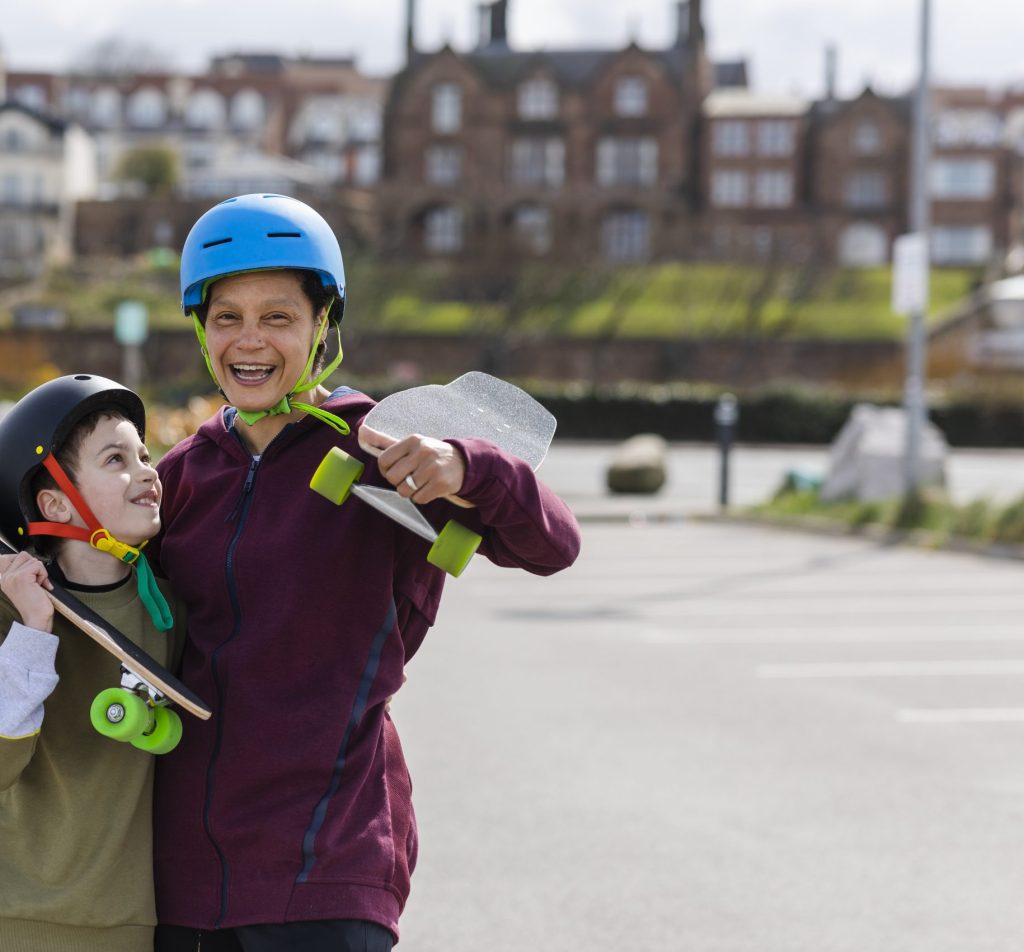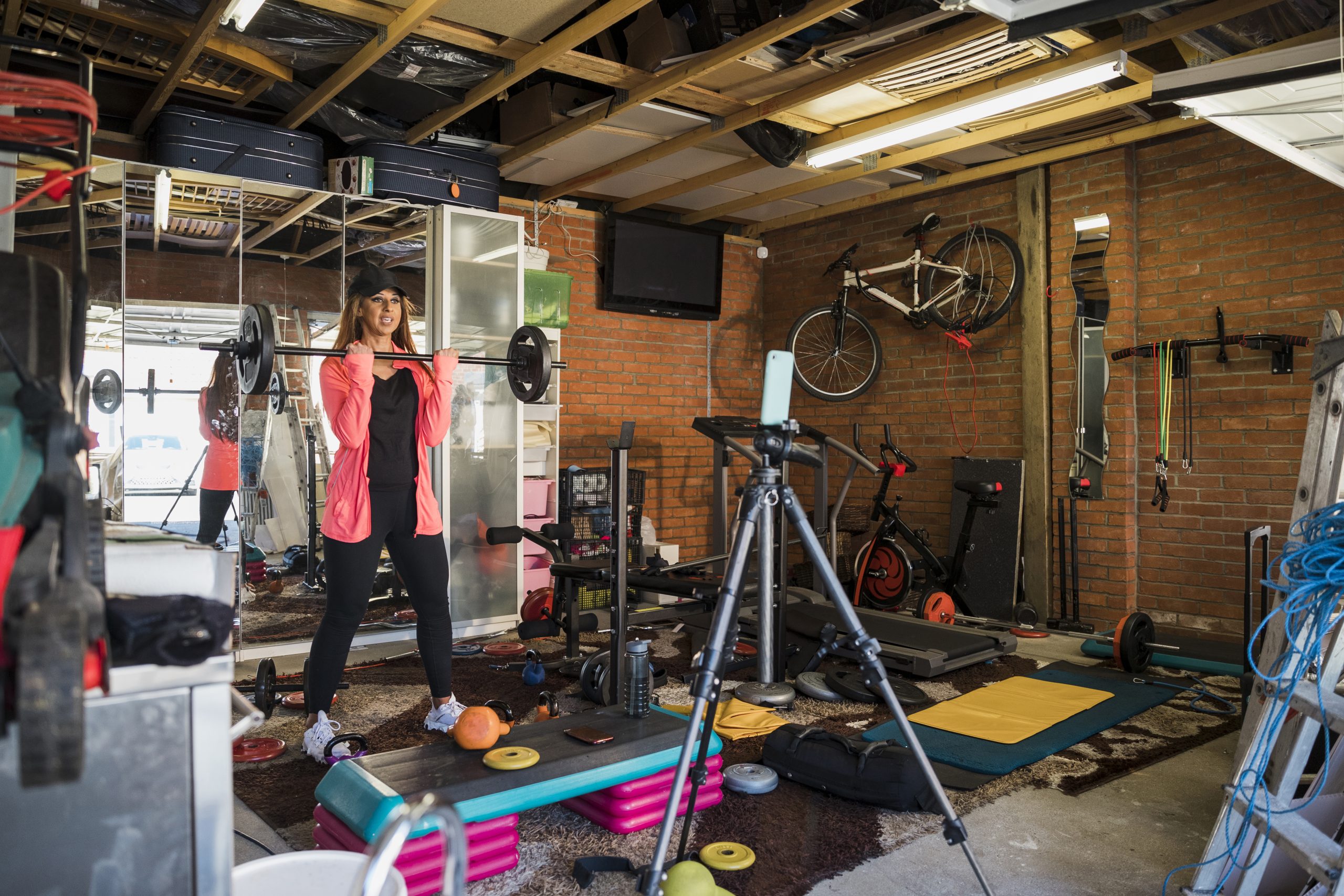
#Menopossibilities: Supporting Women in Midlife
#Menopossibilities is our campaign to break the stigma around the menopause, sport and exercise
Published
At present, far too many women in midlife are missing out on the joy of sport and the social, psychological, and physical health benefits of being active. A third of women aged 41 to 60 are not meeting the Chief Medical Officer’s guidelines of 150 minutes per week of exercise and a fifth are not achieving even 30 minutes per week*.
Our latest research aims to understand women’s experiences of menopause and physical activity and explore what is really preventing them from being active. See the full report and recommendations from the research here.
As part of our research, we spoke to women about their experience of menopause. You can read their stories here:

Name: Shazia, 45
Shazia trained in fitness and counselling and then set up a not-for-profit fitness company to benefit the women in her area. Predominantly populated by South Asian women and their families in Middlesbrough, Nur Fitness helps to deal with key issues such as menopause, mental health and cancer that are still taboo subjects for BME communities.
“Sport isn’t even seen as important part of our culture’s lives. We have purposely chosen women at different stages and places in life to be our instructors. My sister is one of them; she is 55 so I get her to talk about menopause and explain what women this age are going through, they might say “oh that happened to me” and that breaks down barriers. If it is someone near your age, from your background and culture and language, all of a sudden it becomes more acceptable to them. That’s why I am taking part in this: they need to see people similar to themselves because it might help them to know it happens to all of us.
“If we had something like Nur fitness then for my mum, it might have helped her. A lot of women come to me depressed with no one to speak to, people laugh at them and think they are being dramatic. That is what she was like and we suffered the knock-on effects. I don’t want that to go in vein. I want to use my experience to help other people.
“If someone is struggling with their hormones during Ramadan we advise gentle exercise like a walk. The funny thing is that if you are on your period you don’t have to fast. But when you are older and your periods have stopped post menopause you don’t get that break, you have to go the whole time. So it absolutely kills older women who are used to having that break. They are exhausted. Plus they do more than the men, they are doing everything so that can really have an impact.”

Name: Catherine, 52
At least twice a week, Catherine puts on a woolly hat, swimming costume and special gloves that were a gift from her kids and walks into the freezing waters of the North Kent Coast near Whitstable. She has taken up cold water swimming with a group of like-minded supportive women who call themselves ‘Getsalty Whitstable.
Yet just two years earlier, Catherine didn’t even get into the warm, inviting sea in Australia during a family holiday to celebrate her fiftieth birthday. Looking back at photos after the trip, Catherine didn’t like what she saw and says alarm bells went off in her mind. They were evidence of her staying on the beach, covering up her body whilst her two children played in the water.
“I remember telling my sister “I’ve got a belly”. She sympathetically said “It’s the menopause, you can’t do anything about it now, you are stuck with it.” When she went home, I thought “why should I be stuck with it?”
“I thought I need to get healthier and get fitter because my body is changing, there is nothing I can do about that but I want to try to keep up with it and deal with these changes better. At the same time as I was having menopausal symptoms, Louisa who set up ‘Getsalty’ in Whitstable, she had started to do the cold water swimming last year in Jan 2020. I was working with her once a week and she would come in and tell me about all these amazing swims she had had. So I finally went for my first swim.
“The great thing about this group is there is no pressure whatsoever. No one will make you do what you don’t want to do, there is no competition, nothing. Also the camaraderie and what we get from each other is great. We all have a common bond of getting in cold water. Some days your brain goes running in, other times you are thinking I don’t want to get in. Some days there is sea froth and you have to time your entry into the sea to not get knocked off your feet.
“Don’t accept what you are told about the menopause. I was told I would always have a belly, that I would get these symptoms and I would just have to deal with it. There are other ways. For me, I know that the act of cold water swimming has helped me deal with this change in my life. I feel like I am back in control and I feel comfortable with who I am.”

Name: Nina, 48
Whether she is out running, playing badminton or learning how to do a front somersault for fun, Nina has always loved sport and knows how essential it is to her physical and mental wellbeing. She has shared the science and research of the benefits over many years as a lecturer and now works for a health and wellbeing company.
“As a black woman I am at higher risk of various conditions like type 2 diabetes, sarcopenia and others. I was confirmed by a blood test around age 43 to be perimenopausal. I have a blood condition, so I booked a doctor’s appointment to talk about that and the GP said by the way you are perimenopausal. I liken it to a snow globe being shook. I wasn’t given a leaflet, there was no conversation. I’m researching and then beginning to piece little parts of my jigsaw puzzle together.”
“We all need to consider the potential benefits of moving more and the relationship it can have on menopausal symptoms as well as reducing the risk of chronic diseases.
“I want to be fit and healthy to enjoy the things as my son goes through his life… Menopause made me think I need to keep going, be active, be healthy, be strong and fit. So if my son says can we go and do this I am not a watcher – the fact that he is asking I want to be involved. I want longevity to be able to chase that 9-year-old around the field and I want to be on the taekwondo journey with him, we do it together. I will do anything to support my health.
“It is lifestyle, diet, activity, mental health, socio economic status, they all play a role in someone’s menopause journey. I do believe sport has helped me through my journey of being a postmenopausal woman.”

Name: Carol, 54
Carol loves the game of football. When she walks off the pitch each week she is smiling, red faced and sweaty from running around. She took up the game playing socially for the first time in her late forties and over the past few years it has brought great joy to her life and made Carol feel stronger and fitter.
“Throughout the years I have loved football and always been involved somehow but never got the chance to play until I reached my late forties. Women’s football was banned by the FA for 50 years till 1971, so women like me never got the chance to play football. We are part of the missed generation. When I was 48, a friend asked me to play in a charity tournament for a local team. It was so much fun; I completely loved it.
“The Community Foundation who work with the club were running sessions for girls. They had a project encouraging girls to play and I saw a tweet and thought I would love a kick about. I asked the age group and they said it was 14 – 25. I was nearly double the age. I thought I really want to play now, so I thought “what if I get a few women together, can we do something like that for older women?”
“I hadn’t been active for years, I am just not that kind of person to do yoga or fitness classes. I could not run to the bottom of the road without half dying but over the years now I can do that ten times without even realising it. It is so important as well when women are coming up to the menopause. We need to increase bone density, stave off diseases and things like that so it is so important that women are active.
“You get your own identity back. We are all so engrossed with everything, in being mum and family. We are there doing everyday things. But many of the women joining in are saying “this is my time now, it is my time to be active and play football.” The confidence that gives women with their self-esteem is brilliant. We all know the mental and physical health benefits. I see women when they come in and don’t know anyone and I have seen the growth and confidence in women, they are smiling and they love it.
“I want to reach all these women who are going through menopause, which is so important that you are active anyway and I want them to know that normal people like us can be active and it helps.”

#Menopossibilities is our campaign to break the stigma around the menopause, sport and exercise

Menopause is a taboo subject in our society and women going through the menopause are missing out on the benefits of being physically active.